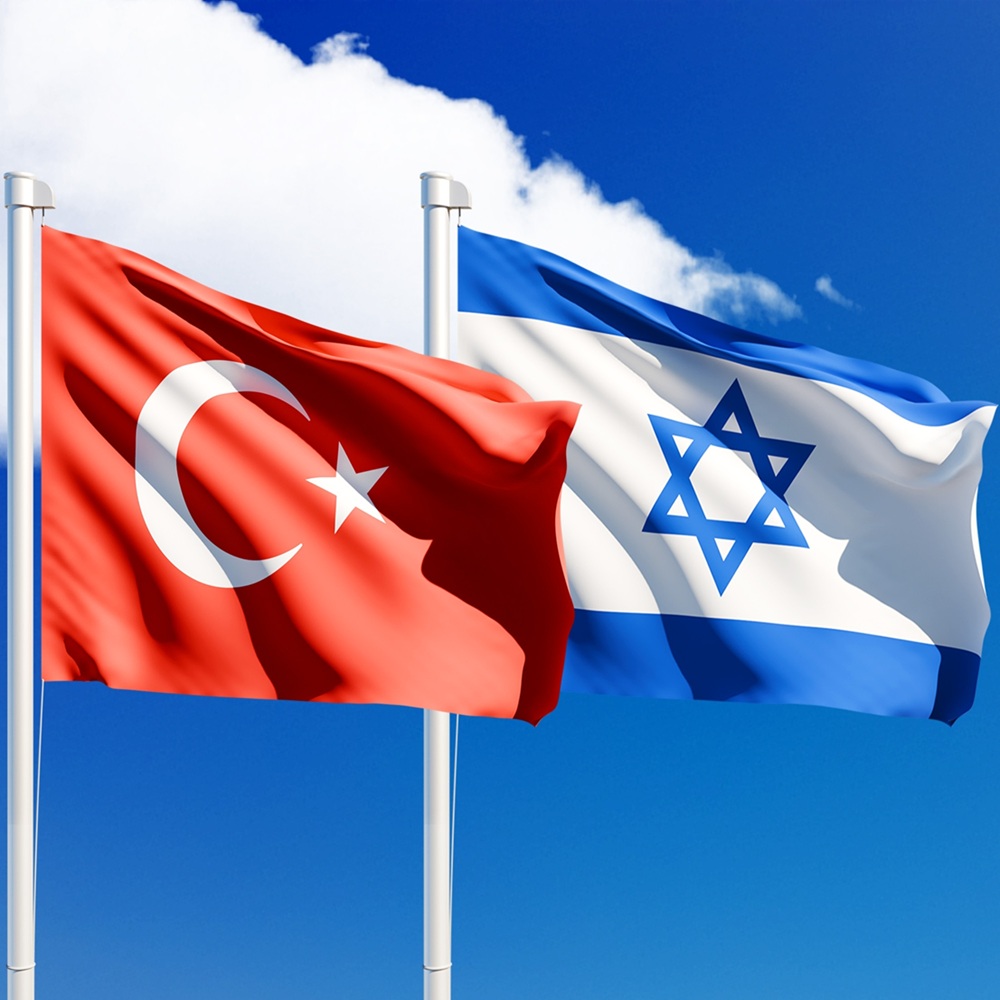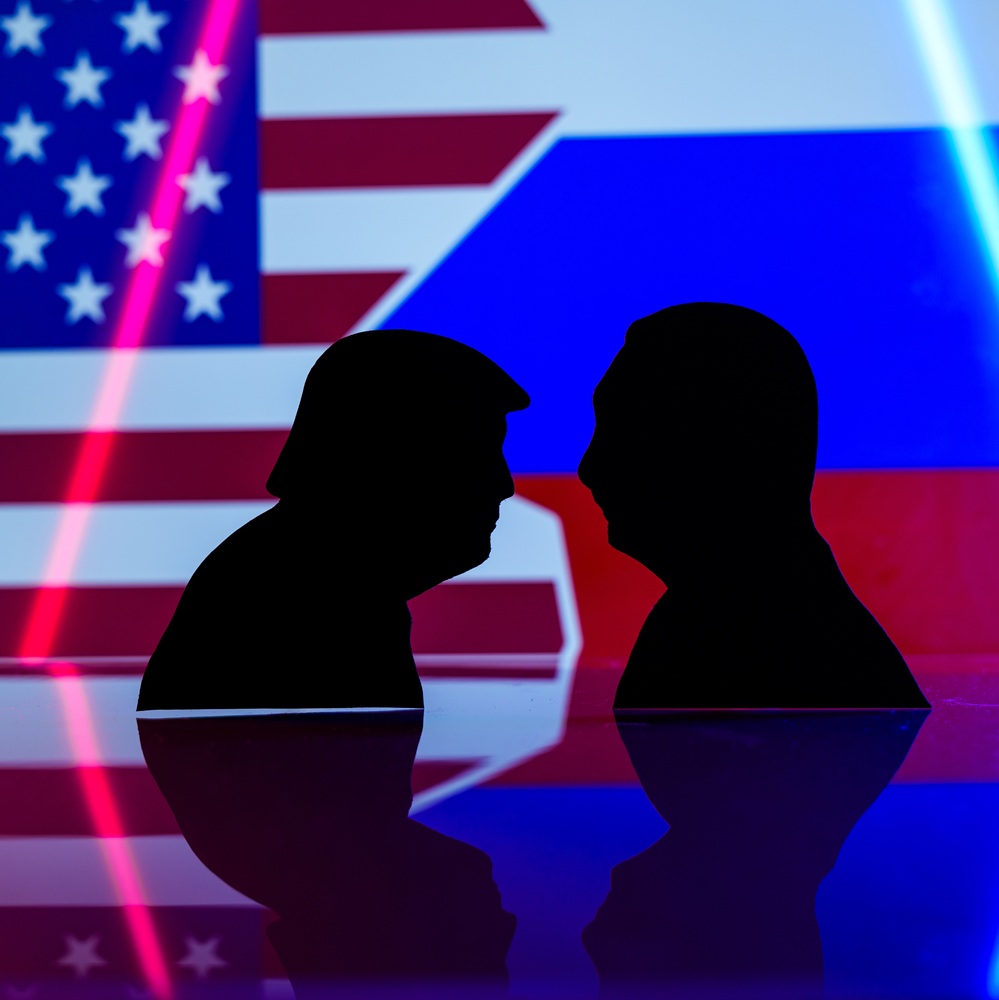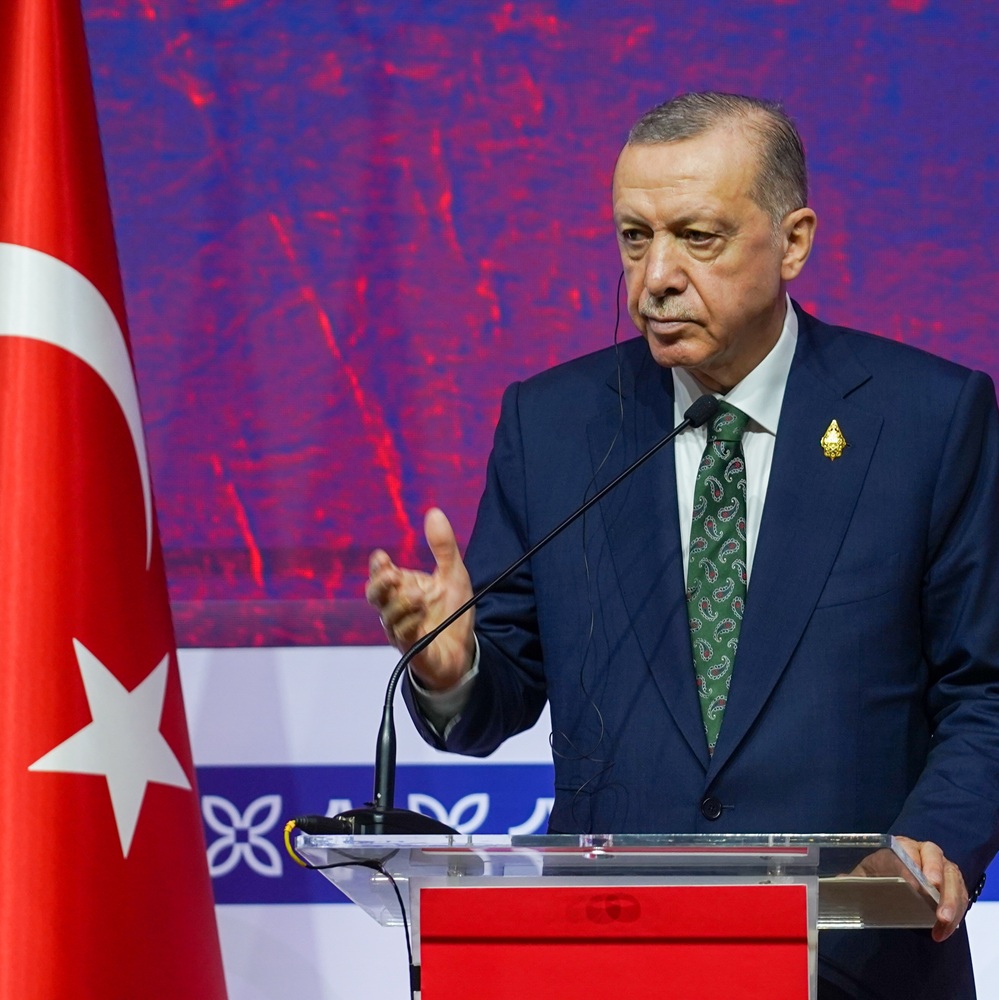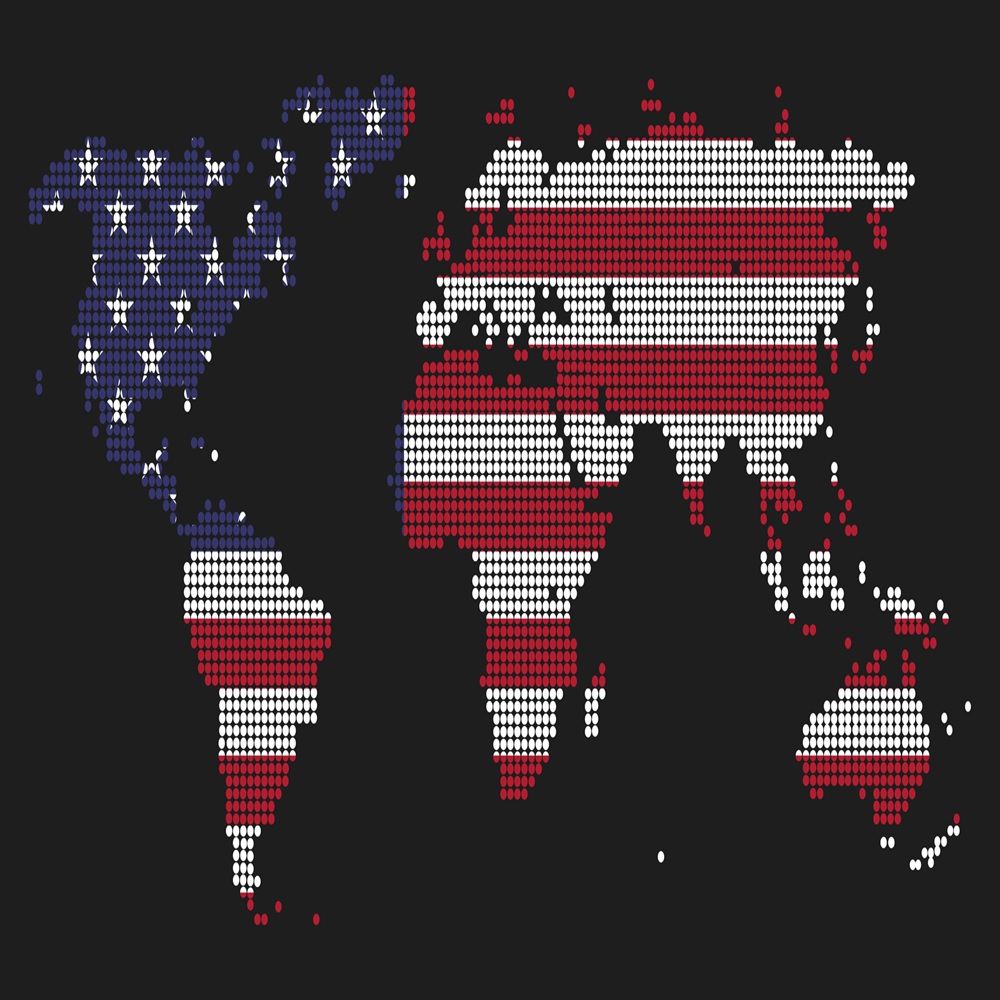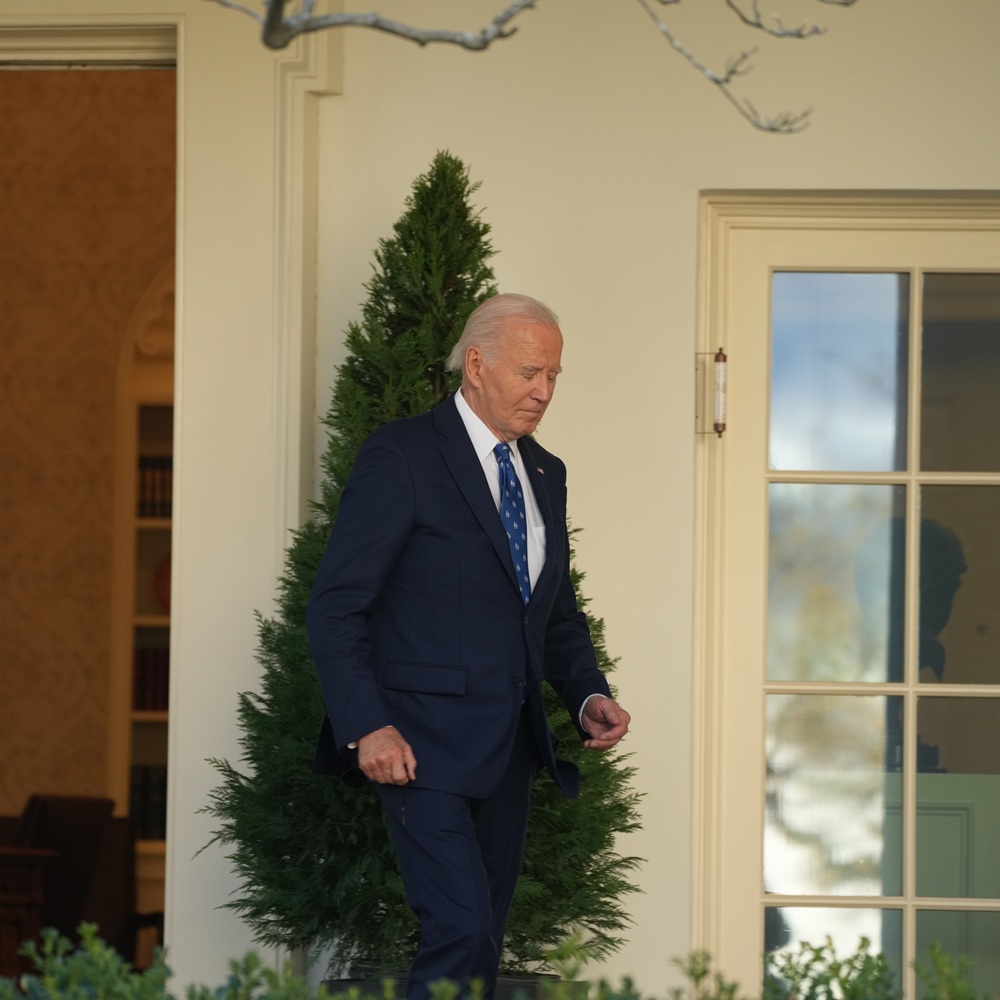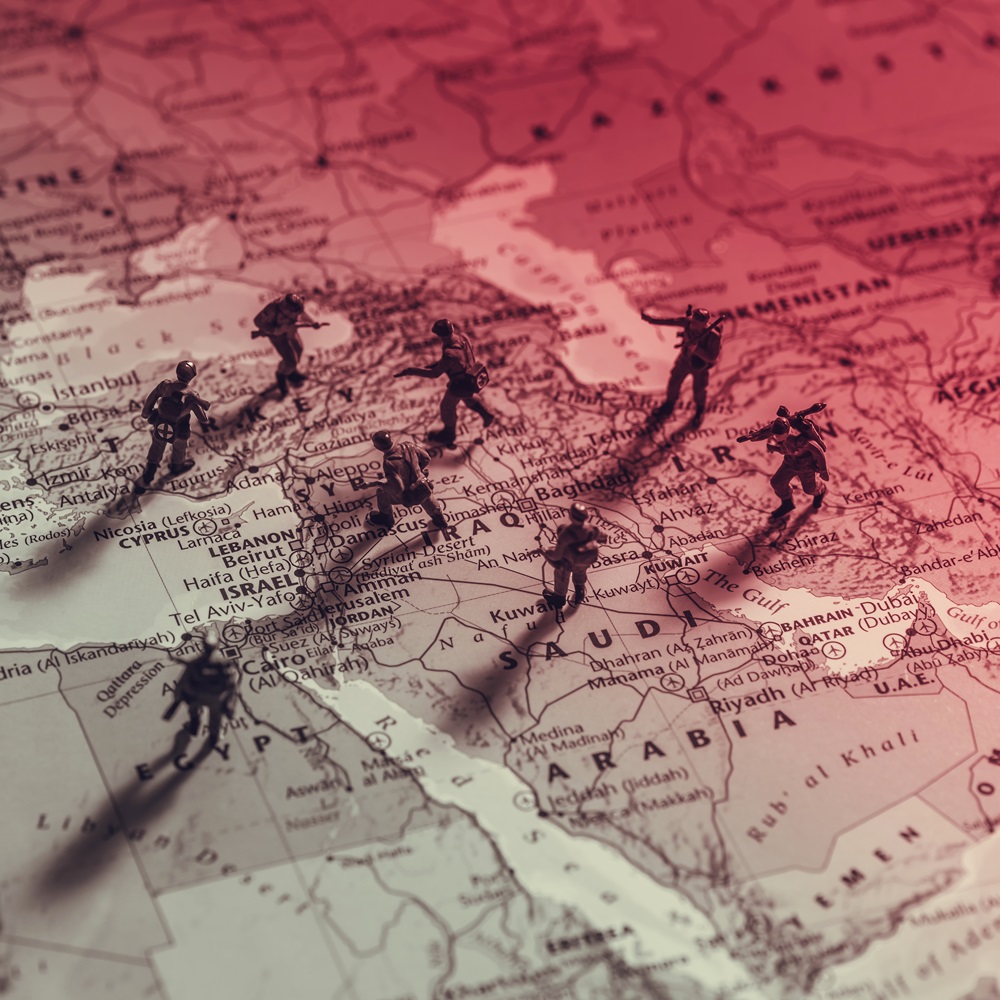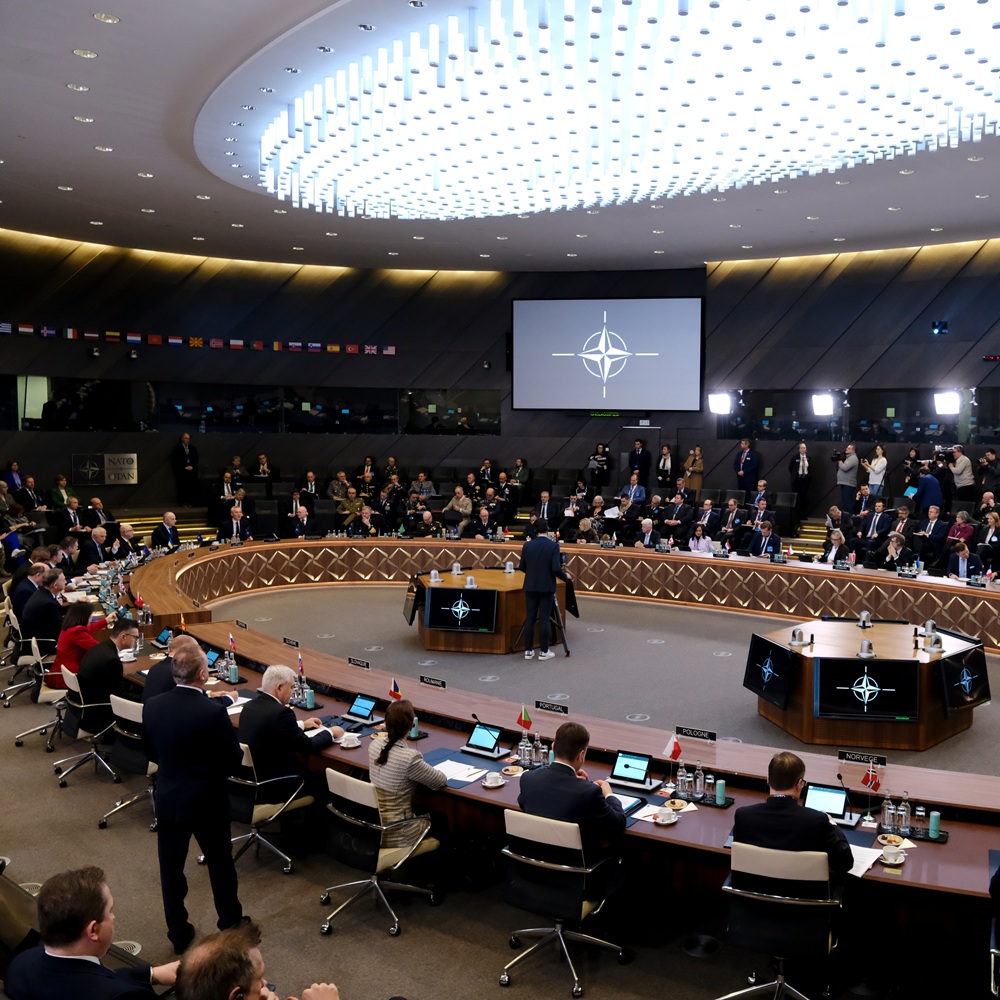
Where is the transatlantic relationship heading?
by Florentino Portero
한국어로 읽기 Leer en español In Deutsch lesen Gap اقرأ بالعربية Lire en français Читать на русском The social dimension of the Alliance The North Atlantic Treaty Organization, the organization created by the signatory states of the Washington Treaty to achieve the goals set by the Alliance, is an institution characteristic of the democratic realm, where governments depend on their respective public opinions when trying to establish a security policy. The people matter – and this is something we must keep in mind – when reflecting on their future. The simplest and most logical answer to the question posed in the title of this conference, the one that responds to common sense, is wherever its member states want. And this is the core of the problem. Do the allies have a common vision? Do they share interests as they did in 1949? Do they still believe they are a community united by their commitment to democracy? Is it reasonable to consider that they form a “collective defense system”? Without clearly answering these questions, it becomes very difficult to move forward with this analysis. We would be venturing into speculative territory. On the other hand, we cannot ignore reality, and this leads us to acknowledge that it is unlikely we will receive clear answers due to a set of considerations characteristic of the present time. The first refers to the lack of reliability of the State because of the high fragmentation of public opinion. Globalization and the Digital Revolution are causing social and economic changes that have led the population to distrust their political elites. Traditional parties are disappearing or losing seats, while new political forces emerge, questioning many of the paradigms we have been working with for years. The societies of the member states no longer have as clear a sense of the purpose of the Alliance as they did a decade ago, because there is confusion about what the actual risks, challenges, and threats they face are. The second is the absence of prominent figures with the authority to exercise leadership at the heads of the allied governments. We cannot ignore that in times of uncertainty, leadership is more necessary than ever, because in its absence, it becomes extremely difficult to shape a sufficiently common position among the citizens. The third is the empirical realization that the Alliance has not been able to manage the crises in Afghanistan and Ukraine in a competent and professional manner. In the first case, the European allies decided to activate Article 5 of the Washington Treaty even though it wasn’t necessary, but wanting to show their solidarity with the state that had guaranteed their security for decades. However, on the battlefield, the vast majority shield themselves behind their ‘rules of engagement’ to avoid complicated situations. The goal was to comply with the United States more than to commit to victory. For its part, the United States was unable to maintain consistent objectives and strategy over time, which led to a humiliating defeat. What was the point of the waste of lives and money if, in the end, the same people returned to power? What was the point of the Alliance's technological superiority if it was defeated by poorly armed militias? In the second case, we have observed that despite the obvious incompetence of its armed forces, its limited capabilities, and its dire economic situation, Russia has managed to consolidate its control over a significant portion of Ukrainian territory and continues to advance. For the average citizen, it is incomprehensible that, having committed ourselves to reclaim all Ukrainian sovereign territory and being much wealthier, our strategy has led Ukraine to the unfortunate situation it finds itself in. Why didn’t we offer them the weapons they needed from the very beginning? Why have we deprived them of the victory we formally committed to? The fourth is a derivative of the previous one. In this context, does it make sense for the citizen to trust the Alliance? Isn’t it understandable that they try to seek refuge within the national framework and fear that the Alliance, in the hands of unqualified people, will drag them into scenarios that are not critical to their lives? Whether we like it or not, the citizen's distrust in NATO is as justified as their intuition that only NATO can guarantee their security, which includes both their freedom and their well-being. What is the Alliance today? In circumstances as complex as those we are currently experiencing, it is virtually impossible for an organization composed of thirty-two member states to be a community committed to the defense and promotion of democracy. The mere reference to Turkey, Hungary, or Spain is proof of how far there are nations within it that are heading in a different direction. The evolution of European political systems points to a worsening of the situation rather than the exceptional nature of the mentioned cases. The community, as well as the idea that it constitutes a "collective defense system," falls within the realm of aspirations. The Alliance has been a “collective defense system,” and I have no doubt that there are allies who continue to act consistently with this idea. However, putting aside formalities, I believe that when assessing the transatlantic relationship, we must focus on its strict condition as an alliance. NATO is an asset that no one wants to lose, even though in its current state, it leaves much to be desired. Its strength does not lie in the common perception of the threat, the solidarity of its members, the available capabilities, or in sharing a strategy, which is clearly nonexistent. What makes its members want to keep it alive is the accumulated legacy after 75 years of shared experiences and the deep sense of insecurity in the face of the dual realization of a world undergoing profound change and poorly prepared national defenses from any point of view. Outside the Alliance, it’s even colder. NATO provides us with a starting point to try to react collectively, knowing that, in reality, except for the United States, no member state has the critical size to act as a "strategic actor." We have a history, an institutional framework, civilian and military bodies, doctrines, resources... that allow us to try to adapt without having to start from scratch. The European Perspective In recent years, the European states that are members of the Alliance have experienced the contrast between the claim that the European Union should assume the role of a "strategic actor" and the harsh, relentless reality of its impotence to effectively and competently address the crises in the Middle East and Ukraine. In parallel, they have shifted from contempt for the United States, due to its erratic foreign policy and its inability to successfully complete its foreign initiatives, to seeking shelter once again under its military strength, considering the evidence of their own inability to understand international politics and act accordingly. It seems beyond doubt that the dynamics of the European integration process are heading towards the establishment of a federation. The transfer of sovereignty represented by the single currency was a milestone, marking the creation of "political Europe" through the Maastricht Treaty. Gradually, we are moving toward a single fiscal policy, with banking union, European monetary fund... ultimately towards the consolidation of an economic and monetary policy. Such significant common economic interests demand both a shared legal framework and a unified foreign policy. However, the factor of time plays a fundamental role. The passing of generations has allowed us to make progress, overcoming nationalist prejudices. Despite the formidable progress made, which is easily reflected in the recognition by young people that we live in a common cultural environment, the reality is that we are still far from forming what Miguel Herrero y Rodríguez de Miñón referred to decades ago as a "European people." One thing is to delegate certain public policies to European institutions, and another, undoubtedly very different, is the exercise of actions that are characteristically sovereign. History and geography matter, and we must acknowledge that we have not yet formed that continental identity that would allow us to credibly face the formidable challenge of establishing a common foreign policy. The advantages of planning together and having the same capabilities are obvious, but above all, what matters is its viability. The Union is still not in a position to replace American leadership. This humbling realization transforms into a flow of energy in favor of the Alliance, assuming as inevitable the implementation of changes that allow it to adapt to a new international environment. For years, we have been aware that the Washington Treaty, and especially its Article 5, are anachronistic. The emergence of new domains – space, cyber, and cognitive – and the development of hybrid strategies challenge some of its foundations. Even so, we try to adapt without facing a reform of the treaty, in an exercise of understandable but risky caution. We are aware that the European theater is no longer the same as it was in 1949, that globalization and the "competition among great powers" in the race to win the "Digital Revolution" have shaped a considerably different scenario that we must integrate into, but we feel dizzy at the thought of leaving our own geographic zone, when we are not even in a position to effectively address our own problems. The American Perspective Since the creation of the United States, American society has lived with the contradiction between its isolationist vocation and its dependence on foreign trade. It fears becoming involved in the affairs of others at a high cost. However, the commercial dimension of its economy demands freedom of navigation, legal security, access to raw materials, and the ability to penetrate other markets, conditions that lead to an international role. From the First and Second World Wars, they learned that it was impossible to turn their back on what was happening in other countries, that they had to commit to international security, trying to establish an order that would guarantee their national interests. After years of involvement in international conflicts that seemed to have no end, isolationist and nationalist sentiment has grown, as a classic pendulum effect. In this context, it is understandable that the public debate openly questions its presence in the Atlantic Alliance. Is NATO a guarantee of the security of the United States? In the years immediately preceding the Madrid Summit, it was evident that the Alliance lacked a threat to unite it, a strategy to guide its steps, and capabilities that would allow it to carry out combined activities. It should therefore come as no surprise that since the second term of the Bush Administration, statements from senior officials have been warning of the dangerous drift of the Organization or threatening its withdrawal. There has been much talk about the low defense spending by many of the European allies. It is evident that without investment, there is no modernization, and without it, there is a technological disconnect that prevents the joint action of the armed forces of the different member states. However, what is truly concerning is what this implies in terms of abuse and disregard towards the United States. Hence, the heated reactions we receive from the other side. It is indecent that we spend on welfare, reaching levels that are unattainable for the average American, while we let them bear the cost of our security, both in economic terms and in human lives. As grave as, or even more than, the lack of investment is the absence of a shared vision and strategy, but it is understandable that the debate has focused on investment, an instrumental element. For European allies, increasing defense spending under the current economic circumstances will be as difficult as it is painful, but it will not be any less difficult or painful to reach an agreement that gives meaning to NATO's existence in the coming years. One of the few consensuses in the Capitol is to consider China as its main rival, around which all its economic, foreign, and defense policies revolve. In the Strategic Concept approved in Madrid, we can read that China is a “systemic challenge” for all of us. What policy have we derived from this categorical statement? Is there an Atlantic vision on this? It is hard to imagine that the Alliance can have a future if the states on both sides of the Atlantic do not reach a common position on how to engage with the great Asian power. In the same document, we find the statement that Russia is a “threat,” which does not align with statements from American leaders of both parties, though more from the Republican side than the Democratic one. It is neither acceptable nor responsible that, after the approval of such an important document, just two and a half years later, the United States acts as if the problem is not theirs. Putting formal aspects aside, is Russia a threat to the United States? To what extent does the behavior of the Moscow government in Eastern Europe affect U.S. national interests? Does it make sense for the United States to get involved in the war in Ukraine? Was Biden's behavior a reflection of a Cold War veteran, detached from the international circumstances of today? The establishment of the Atlantic Alliance was not the result of U.S. leaders in the early postwar years being convinced that the Soviet Union posed a threat to their national interests. On the contrary, they were fully aware that it did not. What concerned them was the extreme weakness of the European states, ravaged by a brutal war, the absence of a democratic culture, the high risk of totalitarian currents feeding off misery and uncertainty, and leading the Old Continent to a Third World War. European governments felt Soviet pressure. The area occupied by the Red Army was experiencing the extermination of representative institutions, Germany was torn between neutrality and partition, communist parties were gaining parliamentary positions in significant countries like France and Italy, supported by the prestige earned in the Resistance. For U.S. analysts, the European perception of the Soviet threat was exaggerated, but its effects could be concerning. The United States chose to engage in European reconstruction to prevent its drift towards fragmentation and totalitarianism, as the consequences of this drift could directly affect their national interests. They established a comprehensive strategy based on two pillars, the Marshall Plan and the Atlantic Alliance. NATO has been and continues to be an instrument to guarantee cohesion and democracy on the Old Continent. The second Trump administration must resolve the tension between the isolationist demand of the citizenry, the need to create jobs on domestic soil through the erection of tariff barriers, the necessity of securing supply and distribution chains, and the consolidation of alliances or understandings between different regional blocs in response to Chinese initiatives. It is a set of contradictory actions wrapped in the populist demagoguery characteristic of our time, but which will require decisions in times marked by a succession of crises. Time for decisions An organization inhabited by officials does not need meaning to continue functioning. From 9 AM to 5 PM, qualified staff will move papers from one office to another, showcasing their professionalism and operational efficiency. However, it is important not to confuse NATO with the Alliance. The latter does need meaning, which is now in question. Whether we like it or not, the coming years will be crucial for its future. We will witness how the decisions made regarding a set of circumstances and debates will ultimately determine it, as well as the link between the two shores of the Atlantic. As happened at its origin, that link will go far beyond security, which is instrumental in consolidating that community which was the original aspiration and is now marked by its absence. The war in Ukraine is undoubtedly the central issue in the transatlantic relationship, as it brings to the negotiation table many of the fundamental issues that question its very existence. We are facing a continental conflict that arises after a Russian diplomatic attempt to reach an agreement on a new balance of power. Moscow's proposal demanded the withdrawal of U.S. units from areas bordering its territory and the removal of its nuclear weapons stationed in the Old Continent. Putin’s government felt threatened by NATO and the European Union's eastward expansion and demanded compensation. When it was not granted, it launched its third campaign on Ukraine and its fifth on territories that were once part of the Soviet Union. This is not a campaign that can be understood in a bilateral Russia-Ukraine logic, but rather as part of an effort by a revived Russian imperialism to reconstitute its historical sphere of influence. This invasion is not the first, and unless the Alliance acts wisely, it will not be the last. The role played by the Europeans has been disappointing. Their response to previous aggressions – Moldova, Georgia, Crimea, and Donbas – was the perfect example of how supposedly educated elites learn nothing from history. The French, Germans, and Italians collectively made the same mistakes as Chamberlain in Munich, thinking that the aggressor would be satisfied by acknowledging their right to aggression, when, in reality, they were encouraging them to proceed and prepare for new expansionist ventures. This attitude provoked the logical irritation and distrust in the Slavic-Scandinavian space, which was never deceived by the ongoing process under the Russian government. These powers refused to believe U.S. intelligence warnings about Russia's willingness to invade and reacted too late and poorly. All this, combined with the old problem of lack of investment in defense, made European armed forces ineffective and their industry powerless in responding to a demand for military capabilities in a short period of time. If the Europeans do not take their defense seriously, if they have become accustomed to parasitizing U.S. leadership, the frustration of their elites with their European allies is understandable. The Biden administration tried to use the Ukraine War to reconstitute the Alliance, but the strategy of attrition applied, renouncing victory out of fear of its political and military consequences, has led to a very high number of Ukrainian casualties and to public fatigue, which, following the Russian plan, is pushing through new political formations from both the right and the left to reach an unfeasible understanding with Russia at Ukraine’s expense. In the new international scenario, characterized by competition among great powers to achieve technological hegemony within the framework of the Digital Revolution, the United States needs Europe as much as Europe needs the United States. Russia does not pose a direct threat to U.S. interests, but it has become a vassal of China and an instrument of Beijing to weaken the cohesion of the Western bloc. The Trump administration must not fall into the temptation of turning its back on its allies, no matter how irresponsible and incompetent they may be, as this would cede ground to the rival. An even more protectionist policy could push European states, if not the Union itself, to seek alternative markets in China. A policy of greater withdrawal would encourage both division among continental powers and the pursuit of a middle ground between the two superpowers. What is at stake is much more than tariffs or investment in defense. What we will decide soon is whether we are a community or not, whether we face the challenges of a new era together, or if we choose separation. Within the framework of the Atlantic Alliance, the United States has valuable allies, particularly the United Kingdom and the Slavic and Scandinavian blocs. Attempting to find a diplomatic solution to the Ukraine War could mean a victory for Russia by recognizing its right to alter Europe's borders by force, and the loss of trust from these allies, who are aware that even Trump would have fallen into the Munich trap, and despite his brash rhetoric, he would have ended up playing Chamberlain’s role. This would be a grave mistake for the United States, which, on the contrary, should rely on these countries to contain Russian expansionism and send a very clear message to Beijing about its commitment to updating and maintaining the cohesion of the Western community. Such an update would require allies, this time for real, to commit to defense investment and be prepared to use their capabilities when necessary. The Alliance needs a strategy. The concept approved in Madrid was merely the political framework to develop it. It is up to the Trump administration to lead its development in order to ultimately agree on what to do about the "Russian threat" and the "systemic challenge" posed by China. The Middle East crisis is unfolding in a scenario defined by two fronts established after years of diplomatic work: the "Abraham Accords" and the Axis of Resistance. Hamas’ aggression towards Israel has materialized in a harsh military campaign in the Gaza Strip, which has severely damaged the political and military capabilities of the Islamist group, and has extended to Lebanon, where Hezbollah is also suffering a heavy blow. In addition, Iran has seen its defense industry, anti-aircraft artillery systems, and, more limitedly, its nuclear network has suffered significant damage, while its intelligence system has been humiliated and degraded. In this context, despite the damage suffered by the Gazan population, the block formed by the Abraham Accords has remained cohesive, aware of Hamas' blackmail and the cost of yielding to it. On the other hand, Europe has presented itself as divided, lacking a strategic vision, not understanding that this was not a problem between Israelis and Palestinians, but an instrumental conflict aimed at undermining the regimes of Arab countries not aligned with the Axis of Resistance. Its criticism of Israel for the effects of its military campaign on the Gazan population consciously ignored both Hamas’ responsibility in turning them into human shields and the cost that accepting Hamas' blackmail would have had for all of us — Arabs, Israelis, and Europeans — if the campaign had not continued. How is it possible that we have so easily forgotten how the Axis powers were defeated? What would have happened in Europe during WWII if we had followed the European Union's demands during the Gaza War? The Middle East is a critical space for the Atlantic Alliance. It is understandable that the United States is frustrated with many of its European allies who, once again, have acted in a frivolous and irresponsible manner, unable to think in strategic terms. Israel has long chosen to turn its back on Europe, in response to a behavior it associates with a new form of anti-Semitism. The Arab bloc appreciates the European sensitivity to the suffering of the Gazan or Lebanese people, but it seeks security under the umbrella of the United States and Israel in the face of the Axis of Resistance, which poses a challenge of internal subversion, asymmetric warfare, and nuclear threat. A renewed Alliance needs to establish a strategy for the MENA region focused on containing Islamism and consolidating moderate regimes. China and Russia are taking advantage of the instability to infiltrate and hinder our missions. For them, instability on our southern front is a strategic objective, one that would fuel migration and insecurity, and with them, division within the Alliance and the Union. The Arab-Israeli bloc distrusts the United States due to its inability to maintain a strategy over time and does not rely on the Europeans. Only a firm stance from the Alliance in favor of this group of countries and against the Axis of Resistance could overcome this situation and guarantee both the cohesion of the Alliance and its authority in the region. The circumstances that led to the creation of the Alliance are behind us. They are history. However, today the Alliance is more necessary than ever. The circumstances have changed, but the community of values and interests remains the same, even though not everyone may understand this. Dissolving this community would be a grave mistake that would only benefit those powers whose goal is nothing more than to "revise" our legacy. Reviving it will not be easy. It will require political awareness and high-level diplomacy. Challenges that are impossible to achieve without leadership that matches the times.









